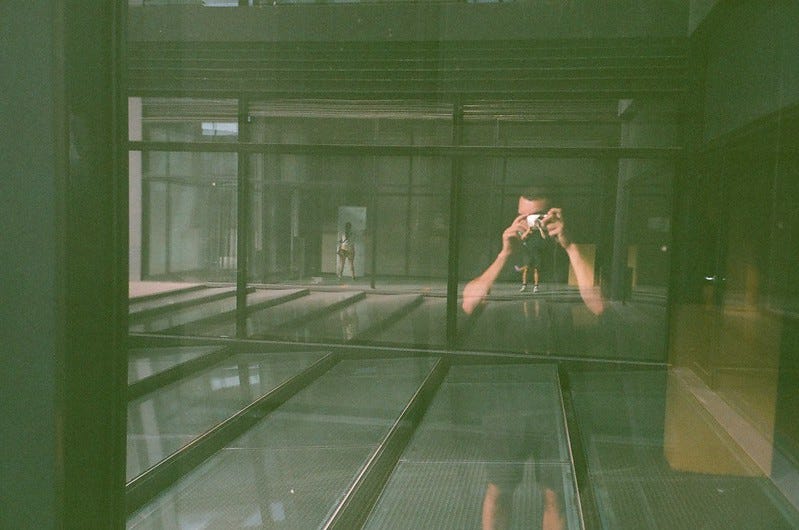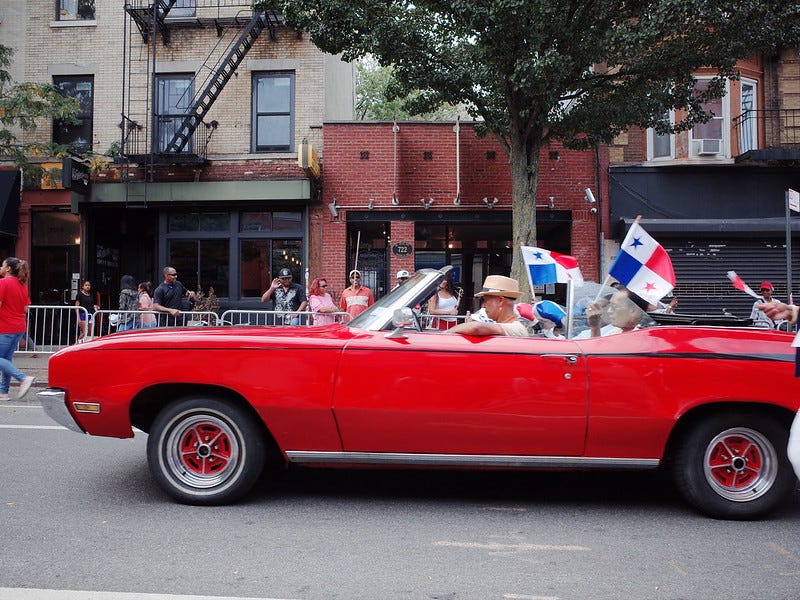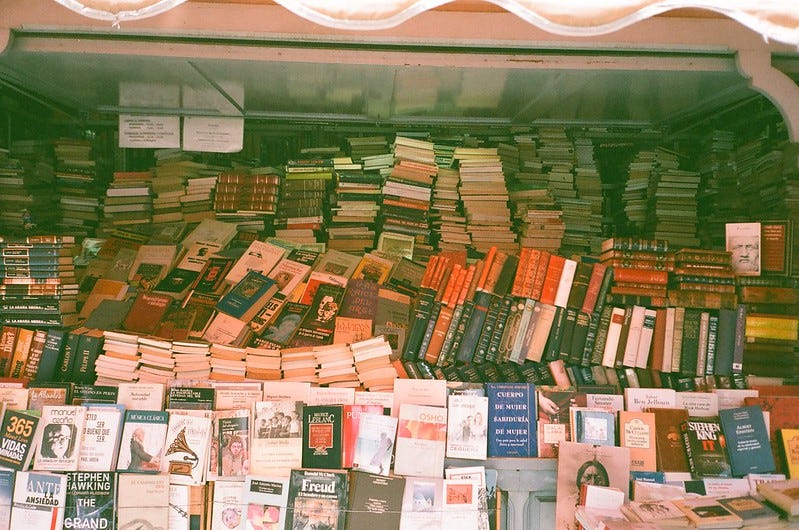Dispatches from the reggaetonero-turned-writer
Expectations and how we perceive writers, people, and people-as-writers
Too long ago, I workshopped a creative nonfiction piece about photography, art, finding joy in small details in life. I delved into certain avenues of my past, especially as they related to my path in analog photography, but I left the deepest inquiries into my personal life for another essay.
After workshop, we writers hung outside, chopping it up. A hooptie lulled by — the ‘05, ‘06 Honda Civic type, modded out, but a Honda Civic nonetheless — and blasted the Nicky Jam tune of the time. The hooptie took its time working through lights, making sure the audience of the city took in all of the boom, ba-boom-bap, boom of the radio hit.
I loved it. I loved the song, the sound system — I got a system like that, too. The ill Corolla hatchback with the subwoofer taking up the back. For what purpose? For the same, of course, as the driver of the hooptie: to offer up my blessings to the reggaeton gods themselves. I hit a little jiggy while the other writers watched on, amused, maybe, by my willingness to entertain the ear-shattering Nicky Jam.
I got a lot of surprised looks. Though some writers in that workshop knew I was Latino, I think others started to catch on. The gears turned, perhaps aligning their perception of me from my writing, quick introductions, and after-workshop hangouts with… whatever they associated with Latino men.
Workshop changed after that. My essays faced one resounding critique: they didn’t seem authentic. They left out something pivotal. They seemed to skip out on the essence of me in a way that is necessary for creative nonfiction.
Was this the case? Or had these same writers then expected more of the figurative sazon to sprinkle overtop my writing? Had they then required my writing to match their expectations of Latinos like me? Had they wished for more references to platanos?
But I’m no reggaetonero, no matter how much they might have wanted me to be one. (Or how how much I wanted to be one, namsayin.)
The mixed experiences related to readers’ expectations of writing — and how those expectations size up their ideas of a certain populace, a culture, a background — have skewered my perception of the heart of writing. This battle is lonely: each of us has to decide why we write, and no answer outweighs another.
For many of us writers, though, we do tap into a lineage that emphasizes and idealizes genuineness and authenticity in writing. If you grew up having Hemingway smacked into you, and you internalized quotes like “Write the truest sentence you know,” you wonder how you can truly tap into a well of earnestness like writers of yore. Does it matter that Hemingway was an old white guy? It certainly doesn’t hurt.
Consider this next thought experiment: someone from a completely distinct background from you asks you to “write the truest sentence you know.” You write “my culture feels like X,” and this person, perhaps an authority in this world of expression and art, says, “I thought your culture was Y!” Do you start to doubt your grasp on your culture being X? Do you start to say, “shit, maybe my culture is a little bit of Y?”
Of course, we can’t control how others perceive our work, and we can’t control the expectations that readers bring to our writing. I don’t doubt that we tap into a vast, deeply entrenched view of “literature” when we write, no matter how much we try to shed the frameworks taught to us in classes and workshops. And the current “literary” or media scene only lends more credence to the idea that there are many trends that influence our writing.
What I’m trying to say: the task of writing with authenticity is a lot harder than it looks. Especially when you second guess “authenticity” as a way of aligning your writing with others’ expectations of your writing. Or, when you align yourself to match others’ ideas of who you should be.
But I recently peered an example of how authenticity might read on the page. I attended StoryStudio in Chicago recently — awesome organization, awesome workshop — and met some of the colleagues in my cohort. I befriended another writer from the jump — A — and we talked through our goals in writing. I saw more and more of his character in how we chatted: he is an immensely kind and generous guy; tender but with clear, sharp visions of his artistry. He was going to workshop on Thursday. I workshopped the day before him. He shared anxieties with me: was he good enough for this workshop? Had he reached this invisible bar of “good” writing?
When you workshop enough, when you read enough people’s writing in familiar settings (i.e., settings where you can talk to the person behind the writing as well), you start to gain a glimpse of this wonderful machine of voice and style combining to generate an image of a person’s inner heart. You see the person on the page in everything: their flourishes, their sternness, their diction, their muteness.
When A workshopped, everything came together. Mind you, by this point I had hung out with him throughout the week. I saw the person so distinctly in the writing. I transported into another world in which, through writing, I felt like I had held a thousand conversations with him. I shared this with A, and he shared a peculiar feeling: he had seen the same with my writing, too.
This exchange inspired me to think about authenticity and writing in a new light: representing yourself on the page with transparency, being unafraid to follow your tendencies on the line level, and, of course, owning your sense of self as a person. That last point underpins all of this, of course, and is kind of the hardest to follow: if you don’t know yourself, you’re not going to have a sense of whom to put on the page, on whose behalf you’re writing. I think, though, this explains a lot of the wandering I had with style, voice, and craft in my 20s — I was finding myself, too, which meant I didn’t really know what I was trying to capture.
I also mean this to say that craft, at its highest point, allows the person to come through completely. There are no hang-ups in the writer/reader exchange because of issues that break the illusion to the reader. It’s like when you watch a movie — to truly absorb yourself in the movie, you can’t be focusing on that unfocused shot, or poor sound mixing.
I’ve gone back and gauged this new lens of authenticity against my past examples of mismatched workshops and readers: some claimed they couldn’t get through to the person behind the page, to the ethos of the writing, sure. But I’ve also realized that this territory comes with being authentic to yourself. If others find your writing confusing because they’d otherwise think you’re confusing, then at a certain point, you have to ask yourself: would I want to reduce my own sense of self for another? No? Then why would I do the same for my writing?
Thanks for reading. Hope the fall has started off with some peace & quiet…or productivity & optimism. ‘Til next time.




